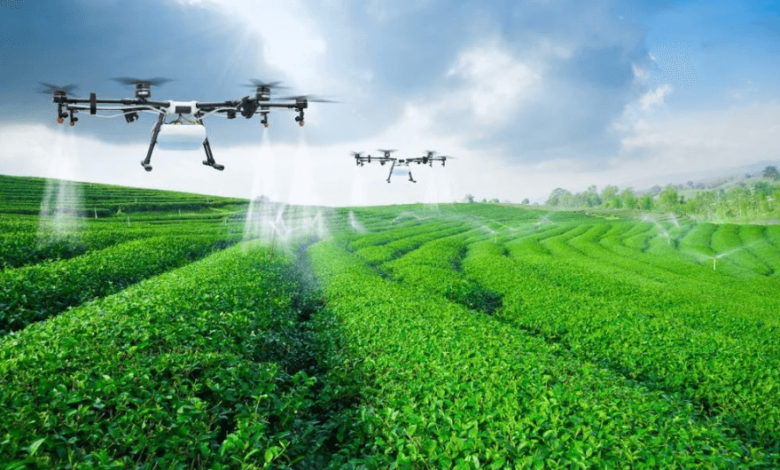How Drones Are Being Used in Agriculture and Farming

Drones are increasingly being adopted in agriculture for their ability to provide precise aerial imagery and data analytics. They facilitate enhanced crop monitoring and health assessments, allowing for quick identification of stress factors. This technology supports precision agriculture, optimizing resource management and reducing waste. However, significant challenges remain, including regulatory barriers and integration with existing agricultural practices. The implications of these advancements on farming efficiency and sustainability warrant closer examination.
Enhancing Crop Monitoring and Health Assessment
As agricultural practices evolve, the integration of drones has emerged as a pivotal technology for enhancing crop monitoring and health assessment.
Aerial imaging facilitates real-time analysis of crop health, enabling farmers to identify stress factors such as pests or nutrient deficiencies promptly.
This innovative approach not only increases efficiency but also empowers producers to make informed decisions, ultimately fostering sustainable agricultural practices.
See also: How Cybersecurity Measures Are Evolving in the Cloud Era
Precision Agriculture and Resource Management
While the adoption of drones in agriculture has revolutionized crop monitoring, their role in precision agriculture and resource management is equally transformative.
Utilizing advanced crop mapping techniques, drones facilitate precise data analytics, enabling farmers to optimize resource allocation. This innovative approach enhances decision-making, reduces waste, and promotes sustainable practices, ultimately empowering agricultural stakeholders to cultivate with greater efficiency and environmental stewardship.
Challenges and Future Trends in Drone Technology for Farming
The integration of drones into precision agriculture has significantly enhanced resource management; however, several challenges remain that could impede their widespread adoption in farming.
Regulatory hurdles complicate operational compliance, while concerns about data privacy raise questions regarding the security of sensitive agricultural information.
Addressing these issues is crucial for the future of drone technology, enabling farmers to harness its full potential uninhibitedly.
Conclusion
In conclusion, drones are not merely tools but heralds of a new agricultural era, transforming traditional farming into a data-driven enterprise. Through enhanced crop monitoring and precision resource management, they empower farmers to cultivate with unparalleled efficiency. While challenges persist, such as regulatory constraints and technology integration, the future promises a harmonious synergy between innovation and sustainability. As drone technology continues to evolve, it will undoubtedly redefine the agricultural landscape, paving the way for a greener, more productive world.



